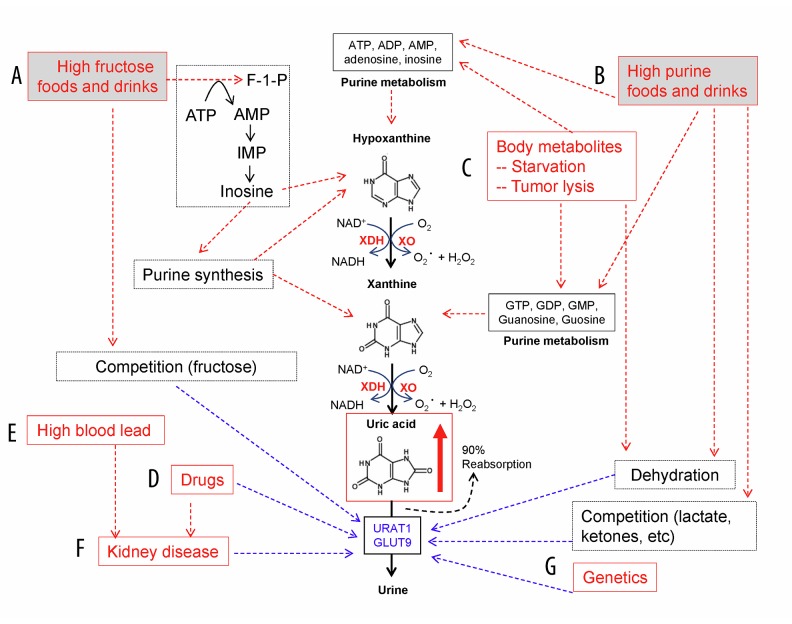Figure 3.
Major causes of hyperuricemia. (A) High dietary intake of high-fructose foods and drinks, which increase the production of inosine and purines. Fructose competes with uric acid for the secretion in the kidney. (B) High dietary intake of rich purine foods and drinks. More purines are metabolized to produce more uric acid. High intake of alcohol (ethanol) may increase lactic acid and ketones and cause dehydration, while decreasing uric acid removal in the kidney. (C) Change of body metabolisms. Starvation may enhance the body metabolism of its own (purine-rich) tissues for energy. Chemotherapy may cause tumor lysis, increasing purine degradation and uric acid production (tumor lysis syndrome). (D) Medications. Some drugs, such as anti-uricosurics and diuretics, may decrease the excretion of uric acid from the kidney. Drugs can also cause renal dysfunction, which decreases the excretion of uric acid from the kidney. (E) Elevated blood lead levels may cause renal dysfunction and decrease uric acid excretion. (F) Many different types of kidney diseases may affect uric acid secretion. (G) Genetic factors. The gene SLC2A9 encodes a protein that helps to transport uric acid in the kidney. Several single-nucleotide polymorphisms of SLC2A9 affect the secretion of uric acid in the kidney

